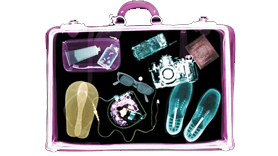Share Economy
Protecting your business travellers in the evolving world of sharing economies
Peer-to-peer sharing of goods and services, including transport and accommodation facilitated through companies such as Uber and Airbnb, has transformed leisure travel in unprecedented ways. 27% of business travellers used shared transport services, like Uber, while travelling abroad, and almost half anticipate their usage to increase. However, using share economy services for business-related travel creates new risk challenges for employers that need to be managed and mitigated.
Download our Travel Share Economy study here.
International SOS is playing an integral role in advising how best to incorporate share economy services into your business travel policies and how to do so within a travel risk management framework. We recommend evaluating the following measures before letting your business travellers take advantage of sharing economies:
Managing your Legal Duty of Care
- Is the service legal in the destination country?
- Does the service provide a comparable level of safety, compared with other traditional services in that country?
- Are there clear guidelines for your mobile workers, based on a risk-based process, which detail the circumstances in which they may (or may not) be permitted to use share economy services?
Accommodation Services
There are several factors that should be taken into account when evaluating the suitability of accommodation in a given destination:
- Security standards
- Emergency response
- Access to services and assistance
- Verification and vetting of staff
- Managing profile/risk exposure
- Accounting for staff
Transport Services
Certain established ride-hailing apps offer travel safety benefits that traditional transport options do not. Below are some factors to consider:
- Car and driver identification
- Quickest route indicator
- Share estimated time of arrival
- Cashless transaction
- Driver rating
- Information security for contact numbers
- Liability insurance
- Cost
Further Information
Tracking and Integration
Organisations that wish to maximise the Duty of Care benefits of share economy platforms will need to consider the ability to integrate with third parties, communicating how employees can ‘opt in’, and reassuring them about the separation between business and personal travel data. By taking these steps organisations can make the most of share economy data to enhance the quality of digital travel risk tools. Filling in the gaps between traditional itinerary data.
Read more about the International SOS tracking here.
Checklists/Policy Development Considerations
International SOS has developed checklists which offer basic recommendations to enable safer travel. The checklists can be found in our Travel Share Economy study. Download here.















